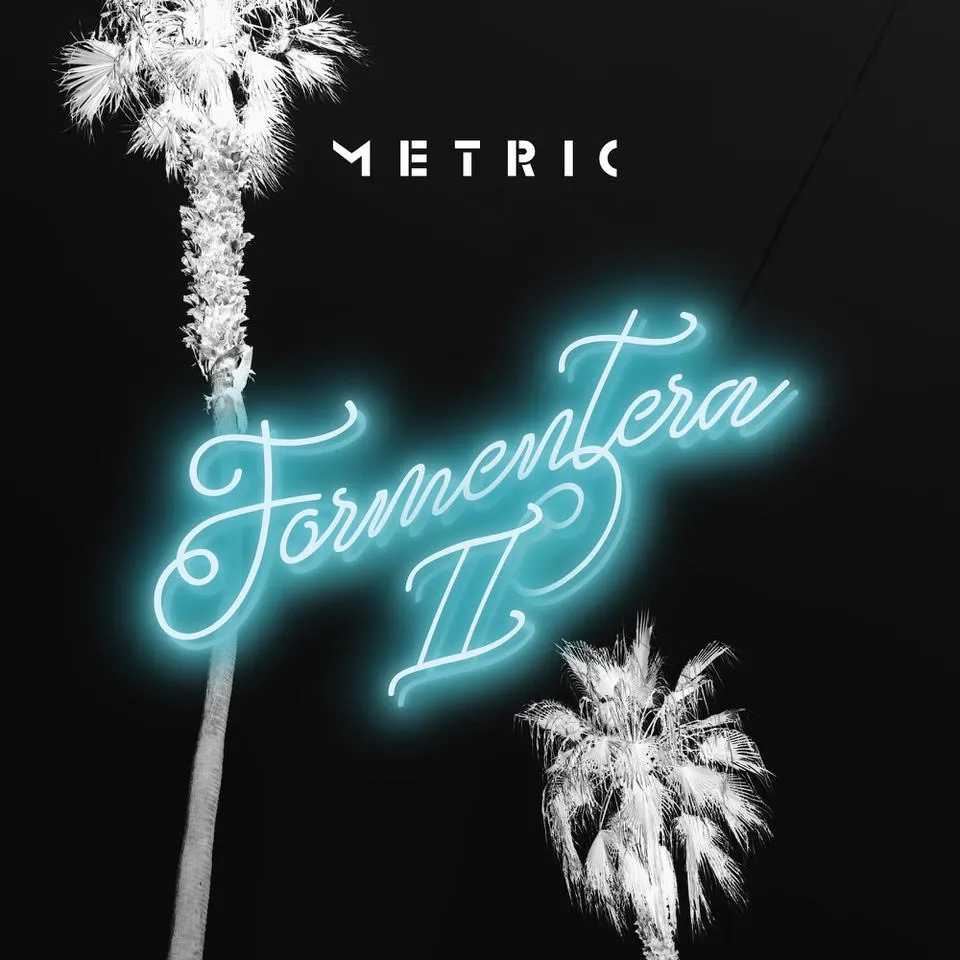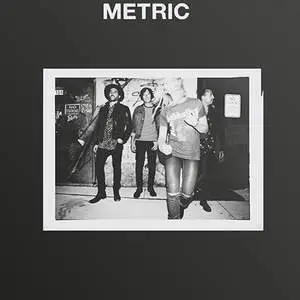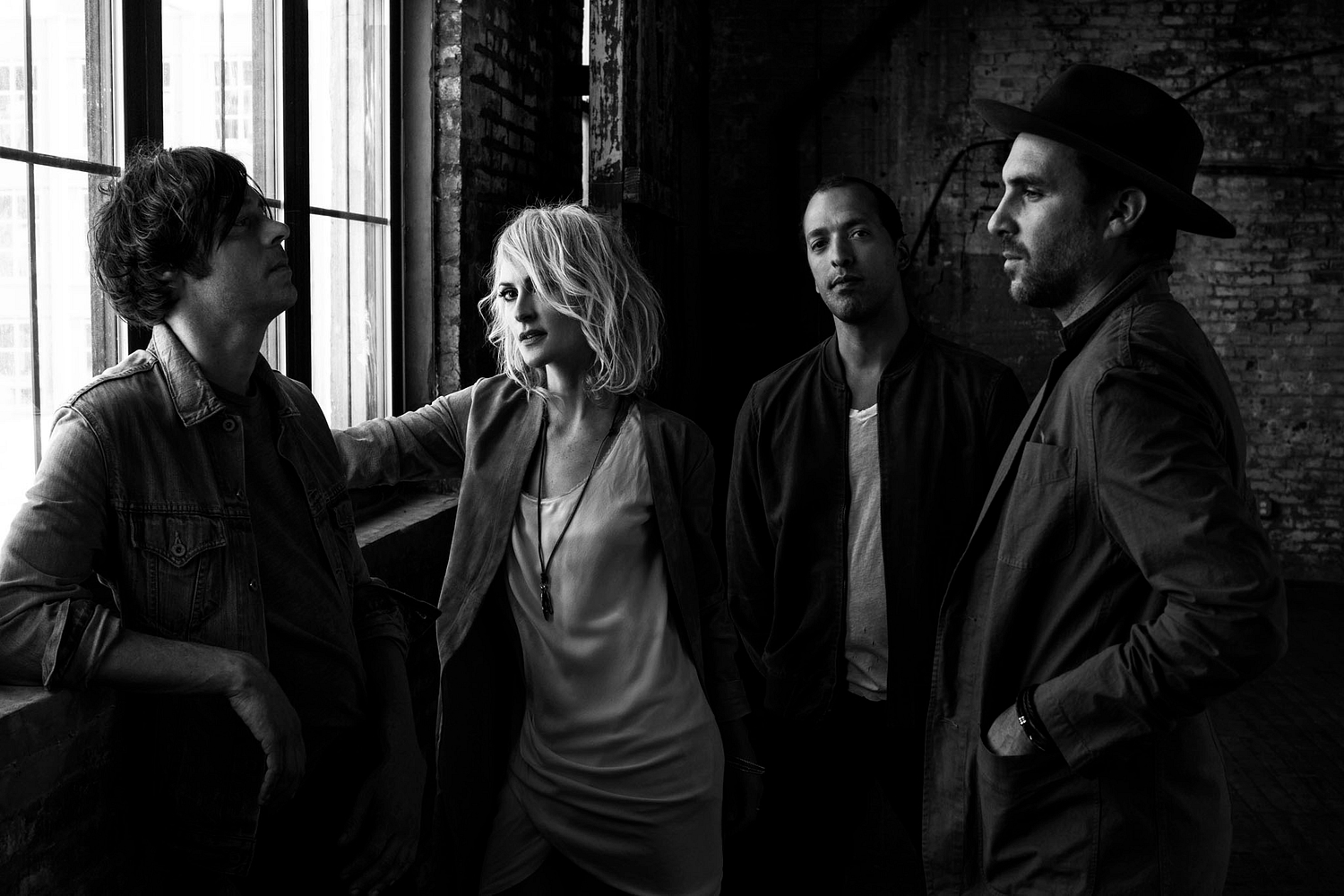
Interview Metric: “In a mainstream world, we’re completely weird”
For their ‘Pagans in Vegas’ LP, Metric aimed to take a year off. “We wanted one, but we didn’t get it,” they tell Joe Goggins.
Metric were hardly a band known for half measures in the first place. ‘Synthetica’, their last full-length release back in 2012, was a shimmering exercise in indie pop that positively simmered with thematic complexity; authenticity, the internet and the human condition were weaved with an expert delicacy through twelve tracks that - on face value, at least - placed melody and hooks before everything else.
The breakthrough record that preceded that one, 2009’s ‘Fantasies’, was produced so torturously - one month on, another one wracked with self-doubt off - that it’s difficult not to feel exhilarated at how easily the Toronto natives seem to be turning out new material at this point. ‘Pagans in Vegas’, their sixth LP, is their most experimental yet, largely eschewing the guitar in favour of modular synths; a gamble, sure, but one that seems to have come off spectacularly. The songwriting partnership between singer Emily Haines and guitarist Jimmy Shaw seems to have hit its strongest stride now, seventeen years since they first convened, and accordingly, a seventh full-length - one that’s stylistically a million miles from ‘Pagans in Vegas’ - will follow in 2016. From a London hotel room, the pair bat back suggestions that the latest Metric records amount to solo efforts, as well as delving into the specifics of Pagans’ gestation and reflecting on their eye-opening summer tour across the States with a bona-fide arena act in Imagine Dragons.
Did you take any time off after you finished touring ‘Synthetica’? Your schedule was pretty gruelling for eighteen months or so…
Emily Haines: It’s funny how it turned out. By the time we finished touring, we were like, “OK, seriously, that’s enough. 2014, we’re off, and I mean off off.” In a horrifying turn of events, though, I fucked off to Nicaragua and Spain for a while, because that’s what I always do when we’ve got some downtime - just disappear with a guitar and ignore myself for a little bit. At the same time, Jimmy was going into our studio in Toronto in the dead of winter, and just hanging out every day, coming up with some music with no pressure whatsoever. By the time we regrouped later in the year, I’d say “hey, man! What’ve you been doing?” and Jimmy said “Ahh! I actually kind of wrote a while album!” and, as it turned out, I’d done the same.
So the year off didn’t happen?
EH: Nope. We wanted one, but we didn’t get it. That said, it was nice to have that realisation: wow! We still really love this! There’s zero pressure, because we run our own label, and we just both found ourselves in different parts of the world, very genuinely making music in a way that we just hadn’t before. In the past, we did it differently; Jimmy might pass these beautiful soundscapes to me to take into my own little world of darkness and melancholy, and I might present ideas to him that he could take and inject with amphetamines and carve a fast and loud rock song out of, something that you could play at Glastonbury and take people’s faces off with.
How drastic was the change in approach this time around?
EH: It was a huge shift, I think. The difference was that we didn’t adapt anything to the basic rock template; we left all the ideas exactly as they were, on the same instruments they were written on, and Pagans in Vegas is 100% that world. It’s all synths of a certain era, and it’s loaded with references to Depeche Mode and New Order - all the electronic stuff that we love. We’re now at the point where we’re finishing up the other album we’ve made over this period, and it’s just completely the opposite. I don’t know if you heard my solo album (2006’s 'Knives Don’t Have Your Back'), but it sounds just like that. It’s really orchestral, and we recorded totally in vintage studios - no synths, just piano, guitars and strings - that whole side of things. I do think the two records complement each other, though, and it was nice to do something that was totally driven by what we were into, and not pegged back by, like, us being perfunctory and saying, “well, we’ve gotta have electric guitar there!” It’s crazy to be sitting here talking to you about it, because I’m amazed that we actually did it.
With LP7 finished, is there a sense that ‘Pagans in Vegas’ is Jimmy’s record and that the next one is yours, Emily?
EH: I don’t feel that way. I mean, we’ve been writing partners for more than fifteen years. The seeds always start with one of us, individually, but the overall commitment to every song we ever write is totally, 100% 50/50.
Jimmy Shaw: 100% 50/50? Is that 200%?
EH: Oh, yeah, for sure. These songs have got some serious mass, man. I think the upshot is that I didn’t want to make a ‘me’ record, and Jimmy didn’t want to make a ‘him’ record. That was never the point.
JS: It’s almost like that’s the way that it started. Last April, we met up in Los Angeles, and we played each other everything that we’d been putting together on our own. I mean, when I was writing the stuff that I came up with for 'Pagans in Vegas', I genuinely wasn’t writing it with Metric in mind - it wasn’t the sort of thing I’d normally gravitate towards for this band. I was just recording what was coming out, and Emily was doing the same, and when we compared notes, so to speak, she thought that what I was doing should be the direction of the next Metric record, and vice versa - I was convinced that what she’d written was the next step for the band. It seemed like the best possibility for moving the group forwards was to pursue both of those ideas, because it meant we’d be moving beyond what we’d done already. It seemed like a really honest way to move into some unchartered territory.
With ‘Synthetica’ being so heavily centred around electronic influences, was there a degree of continuation, Jimmy, in going straight back to the studio and carrying on in that vein, rather than picking up the guitar or sitting at the piano?
JS: Yeah. I guess, for me, it wasn’t entirely conceptual though; it’s just that I was back in Toronto, it was mid-winter, and nobody else was really around. I was going to the studio and firing up a drum machine and my modular synthesiser, which takes up an entire wall of the control room. I’d start playing basslines with my left hand and melodies with my right, and I was doing it almost more as an exercise than a conscious attempt to write new songs. It just seemed like what was coming out had a vibe; it had an energy to it, and I think we decided it was best if we didn’t fuck with that.
I mean, an example is ‘Breathe Underwater’ from the last record; that was written in exactly the way I just described, but then we’d say, “OK, let’s swap the drum machine out for a live kit, let’s play that bassline on an actual bass guitar, and let’s reconfigure that melody and turn it into an electric guitar riff.” This time out, we were like, you know what? This is vibey enough as it is. Let’s just leave it; rather than worry about it losing its essence if we didn’t adapt it for live instrumentation, we tried to harness the essence and let the songs grow out of their electronic roots.
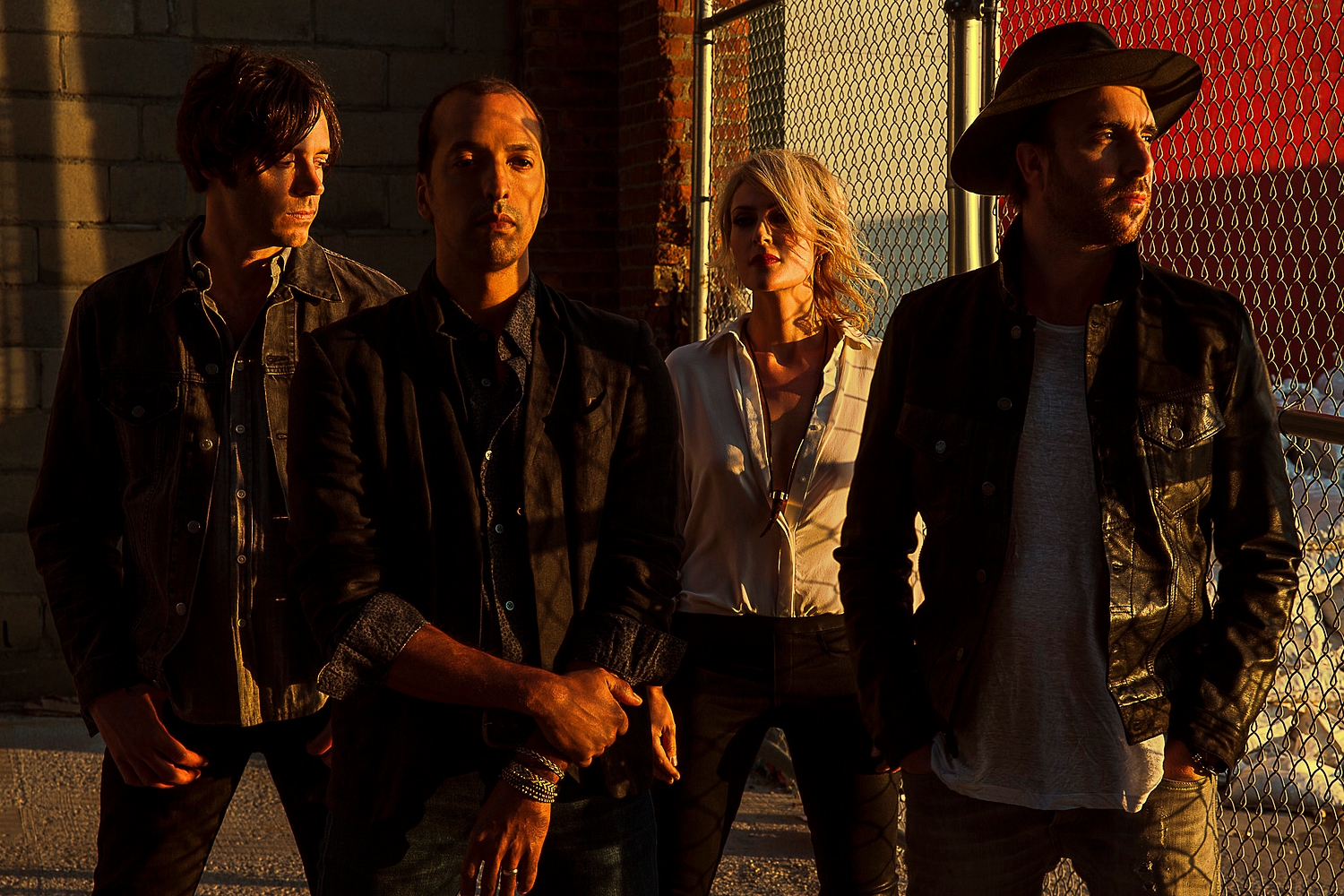
"If you’re only going to play to your own fans, then what’s the point of playing at all?"
— Jimmy Shaw
Conceptually, ‘Synthetica’ was very complex - there doesn’t seem to be the same kind of overarching theme to ‘Pagans in Vegas’, and Emily, I read that you were aiming for lyrical simplicity with a lot of these tracks, and that when you did try to lend them a greater depth, it didn’t really work. Is that fair?
EH: Yeah. It was just a lot more organic. There was definitely a difference between how the lyrics were written for previous records, and how I approached them on this album. In the past, there was something very straightforward, almost formal about them; it was like how, if you had a problem, you’d sit down with a therapist to solve it. It was a lot looser this time - instead, it was kind of like that gradual way of getting past a problem, where you might read a book, see a movie or talk to a friend and find yourself slowly coming to terms with your issues. I mean, you’re a writer, so you’ve probably got an idea of what I’m talking about; I just didn’t feel like I had any great statements to make on this album. If I was going to write, it was going to be for myself.
What I wanted to do was focus on serving the sounds and the ideas that Jimmy was presenting with the music. ‘Cascades’ is a great example; that was one of the first songs on this album that I really attached myself to. Instrumentally, it was completely finished; what you hear on the album is what I heard when Jimmy first played it to me. I was travelling, and listening to it over and over again, and honestly, the lyrics were just there all of a sudden; they made a ton of sense, and were really positive without being syrupy. I just felt that was a great way to go about it; I was approaching the writing from this angle of friendship. It was kind of, “OK, he’s trying to say one thing with this music, so what’s the lyrical equivalent?” I didn’t bring any of my own baggage to this record, and I guess that was helped, in part, by the fact that LP7 was hovering in the background; I knew that if there was to be something I needed to say that required six verses and seven minutes for me to get across, then I could do it there in exactly the way I wanted to. The whole process felt very free.
How did the new material go over in the arenas you were playing on the Imagine Dragons tour?
JS: It was just a ton of fun to play. Truthfully, there’s always a degree of adaptation involved when our music hits the stage. I mean, you listen to a track like ‘Cascades’ on the record, and you know it’s electronica all the way; the live version, though, is different, because half way through, the band really kick in. I think, in general terms, it was just interesting to be part of a world that’s so incredibly mainstream. Those guys are very, very sweet, and it was always their intention to aim for that section of the musical world - to be along for the ride was fascinating. We were kind of honoured that they would let us peek behind the curtain like that; it was bizarre, because so much of our lives as musicians has been about riding this fence between mainstream, commercial pop culture on one side, and artistic, independent thinking on the other. In that context, we felt like the art band in the room, especially when we’d play something like ‘Too Bad, So Sad’, and their fans would have this look of total puzzlement on their faces.
It was a great thing to be involved in, though. When it comes down to it, if you’re only going to play to your own fans, then what’s the point of playing at all? It was an opportunity to change people’s train of thought, to expose them to new sounds and lyrics. By the end of the summer, we’d played to something like half a million people, and hopefully showed them something they hadn’t seen before. That’s cool.
EH: Totally. And that’s something you’re never going to be able to do if you’re not willing to accept that a lot of people won’t know who you are. That’s such a mistake. It was crazy how that tour almost allowed us to be this art band again, because in our circle of friends, which is made up of artists, I guess, we’re pop stars, you know? But in that mainstream world, we’re completely weird. That was great - I felt right at home.
Pagans in Vegas is available now via Metric Music. Metric tour the UK from 7th October.
Read More

Metric share ‘Fortunes’ from new album, ‘Pagans In Vegas’
The band tour the UK this October.
21st August 2015, 12:00am
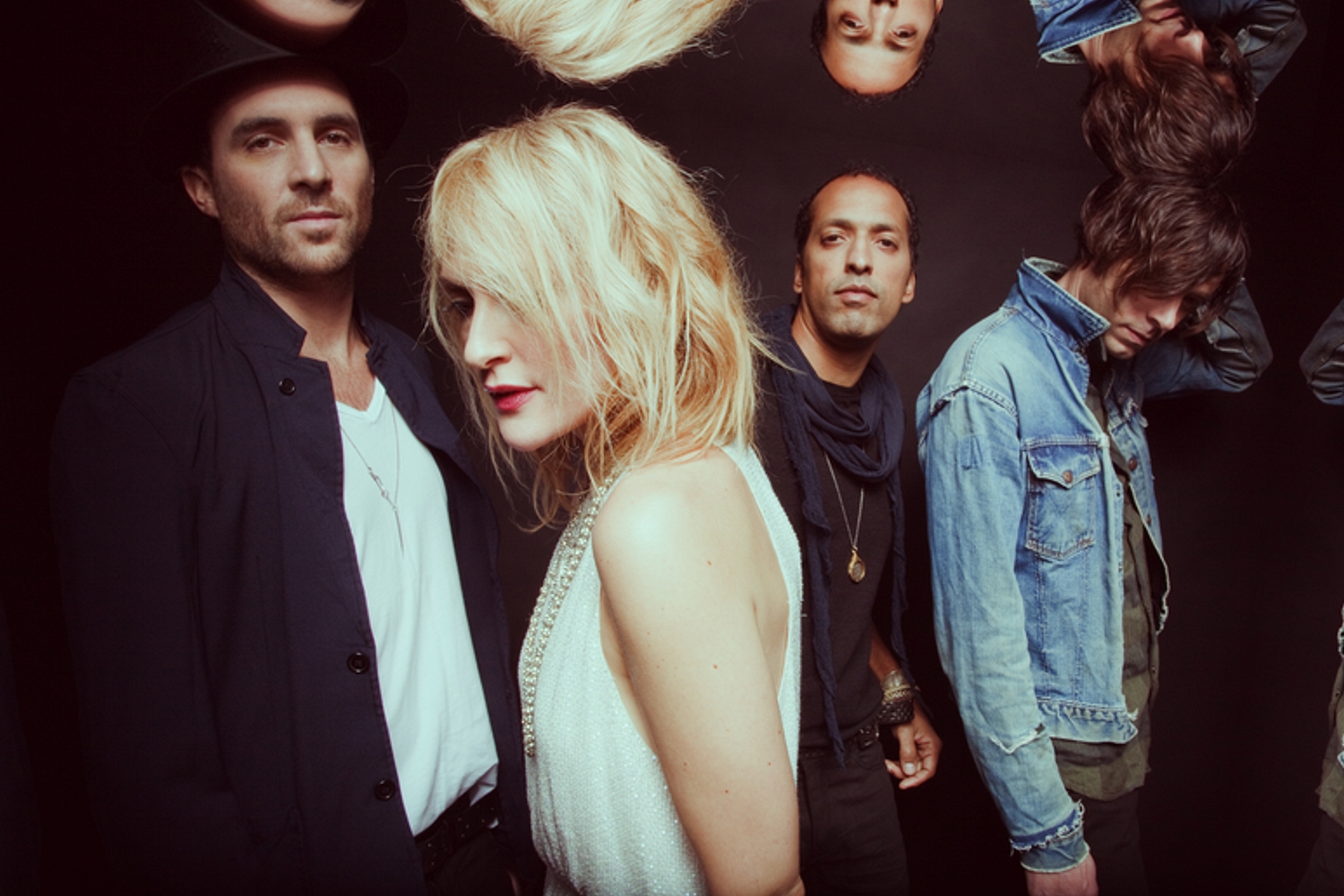
Metric: “Nostalgia just leads to nausea”
Group talk revivalism ahead of their new album, ‘Pagans in Vegas’.
28th July 2015, 12:00am

Metric plot UK tour following ‘Pagans in Vegas’ release
The band will return this October.
7th July 2015, 12:00am

Metric share new track, ‘Cascades’
The track comes from their forthcoming album ‘Pagans In Vegas’.
2nd June 2015, 12:00am
With Bob Vylan, St Vincent, girl in red, Lizzy McAlpine and more.
